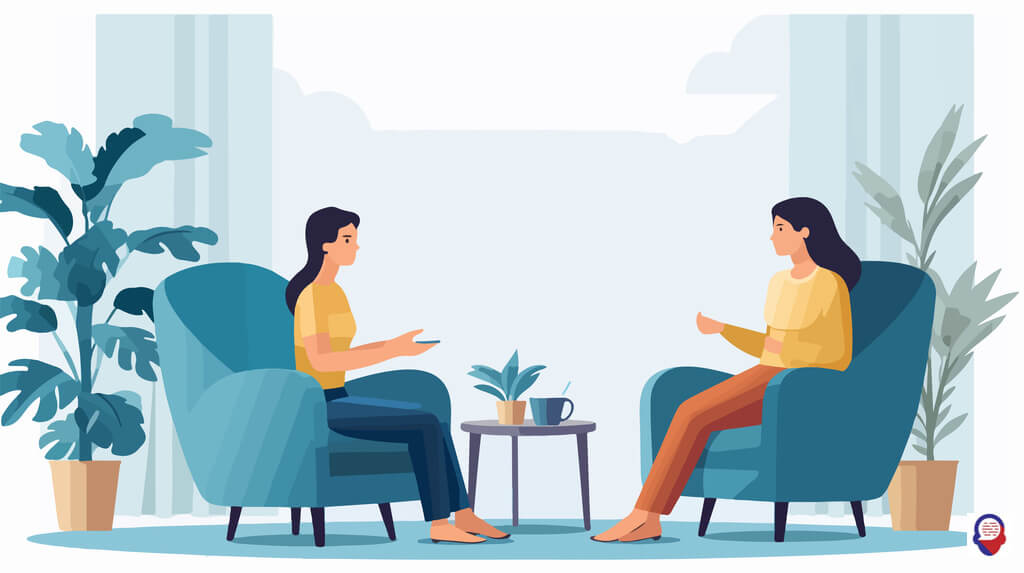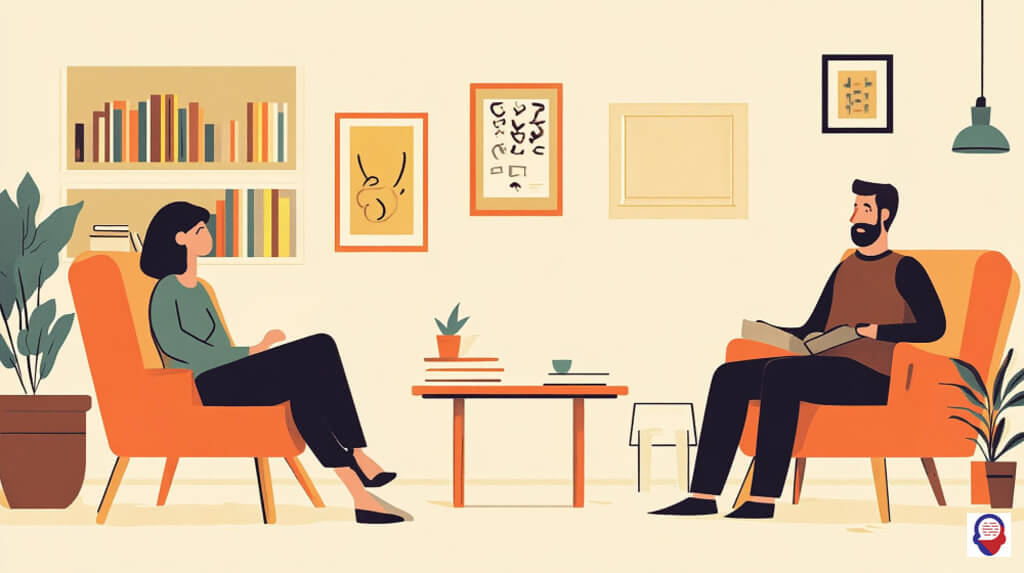Finding a Gay Therapist: A Guide to Affirming Care
Therapy is a journey toward understanding yourself. It’s a brave step, a commitment to untangling the knots within. For everyone, finding the right guide for that journey is crucial. But for gay individuals, the search for a therapist can feel layered with extra questions, unique concerns, and a profound need to be seen, truly and completely, without having to explain the very essence of who you are. This isn’t just about finding a competent professional, it’s about finding a space where your identity isn’t a subject for debate but a celebrated starting point.
This guide is for you. It’s for anyone navigating the world as a gay person and considering the powerful, transformative potential of therapy. We’ll explore what it means to work with a gay therapist, why that shared identity can be so pivotal, and how you can find the professional who is the absolute best fit for you. Because you deserve more than just tolerance, you deserve affirmation.

What is a Gay Therapist?
A gay therapist is a licensed mental health professional, such as a counsellor, psychotherapist, or psychologist, who personally identifies as gay. They bring not only their extensive clinical training and professional qualifications to the therapy room but also the invaluable perspective of their own lived experience as a member of the LGBTQ+ community.
This dual expertise is what makes the prospect of working with a gay therapist so compelling for many. It’s the combination of professional skill and personal understanding. They have studied the theories, but they have also lived the reality. This can create a unique therapeutic alliance built on an implicit foundation of shared knowledge and mutual respect from the very first session.
A gay therapist understands the cultural shorthand, the societal pressures, and the subtle nuances of navigating a world that is not always built for you. Their identity isn’t just a biographical detail, it’s a lens through which they can offer deeper empathy, more targeted insights, and a profound sense of solidarity.

Why Should I Consider Seeing a Gay Therapist?
You should consider seeing a gay therapist for the profound sense of safety, understanding, and validation that comes from working with someone who shares your lived experience. This shared identity can accelerate the development of trust and rapport, allowing for deeper and more effective therapeutic work to happen sooner.
For many, the therapy room is the first place they have ever felt completely unguarded. When you don’t have to spend the first few sessions cautiously vetting your therapist for prejudice or spending precious time explaining the basics of gay life, you can get straight to the heart of what brought you there. It’s an immediate offloading of a burden you may not have even realised you were carrying.
This isn’t to say that excellent therapy cannot happen with a straight, cisgender therapist. It absolutely can. However, for many gay clients, the connection with a gay therapist provides a specific kind of relief, a feeling of coming home to a conversation where the fundamental parts of your identity are already understood and accepted.

Can a Shared Identity Really Make a Difference?
Yes, a shared identity can make a significant and often transformative difference in therapy. It removes the implicit burden on the client to act as an educator, allowing them to focus entirely on their own healing and growth from the moment they walk in the door.
Imagine trying to describe the colour blue to someone who has never seen it. You can use metaphors and comparisons, but you can never be sure they truly grasp its essence. Now, imagine describing it to someone who sees blue every day. The conversation is instantly richer, deeper, and more nuanced. This is the difference a shared identity can make.
You won’t have to explain the concept of minority stress, the sting of a microaggression, or the complex emotions tied to your coming out journey. You can talk about chosen family, the nuances of the dating scene, or the weight of internalized homophobia, and know that your therapist has a framework to understand it, not just theoretically, but often personally. This frees up immense emotional and mental energy for the actual work of therapy.

What If I’m Not “Out” Yet?
A gay therapist can be an invaluable, non-judgmental ally if you are not yet out to the world, or even if you are still figuring things out for yourself. They provide a completely confidential and protected space to explore your identity, your feelings, your fears, and your hopes without any pressure or expectation.
The journey of coming out is uniquely personal, and there is no right or wrong timeline. A gay therapist understands this intimately. They can serve as a sounding board as you grapple with questions, a safe harbour as you navigate fear, and a source of support as you decide what coming out looks like for you, if and when you choose to do so.
Their role is not to push you out of the closet, but to sit with you inside it for as long as you need. They can help you build the internal strength, self-acceptance, and resilience required to navigate that journey on your own terms. The therapy room can become your first truly safe space to be your authentic self.

Are Gay Therapists Only for “Gay Issues”?
No, gay therapists are fully qualified mental health professionals who treat the entire spectrum of human experiences, not just issues related to sexuality or identity. They are equipped to help clients with anxiety, depression, trauma, grief, relationship problems, career stress, and any other challenge life throws your way.
Their professional training is comprehensive, covering the same wide range of psychological theories and therapeutic modalities as any other licensed therapist. Their identity as a gay person is an additive layer of insight, not a limitation on their scope of practice. It enhances their ability to see the whole person.
You can go to a gay therapist to talk about a difficult boss, a conflict with your parents, or a feeling of being stuck in life. The benefit is that they will hold all of that for you through a lens that also implicitly understands how your identity as a gay person might intersect with those issues, even in subtle ways. You get comprehensive care, plus an extra layer of affirming understanding.

What is LGBTQ+ Affirmative Therapy?
LGBTQ+ affirmative therapy is a specific approach to psychotherapy that actively embraces and validates the identities and experiences of lesbian, gay, bisexual, transgender, and queer individuals. It moves beyond passive acceptance to create a therapeutic environment that is actively positive, knowledgeable, and celebratory of LGBTQ+ lives, countering the long and damaging history of psychology pathologizing these identities.
This is not just about being nice. Affirmative therapy is a clinical competency. It requires specific training, ongoing education, and a deep commitment to understanding the unique developmental, social, and psychological challenges faced by the LGBTQ+ community. This includes an understanding of concepts like minority stress, the impact of systemic discrimination, and the importance of resilience and community.
An affirmative therapist works from the assumption that LGBTQ+ identities are a natural and healthy variation of human identity. The goal of therapy is not to "fix" or change a person’s orientation or gender identity, but to help them navigate the challenges they face, build self-esteem, and live a full, authentic, and thriving life.

How is This Different from Being “Gay-Friendly”?
Being "gay-friendly" suggests a baseline of tolerance or passive acceptance, while being "LGBTQ+ affirmative" represents an active, educated, and validating clinical stance. A therapist who is "friendly" may be well-intentioned and not hold personal prejudice, but they may lack the specific knowledge and skills to effectively support a gay client.
Think of it this way: a "friendly" hotel might welcome you as a guest. An "affirmative" hotel would have staff trained in your culture’s customs, offer amenities you appreciate, and celebrate your holidays alongside you. The first is about non-discrimination, the second is about true inclusion and understanding.
An affirmative therapist has done the work. They understand the history of oppression the community has faced, both in society and within the mental health field itself. They use inclusive language, understand the importance of pronouns, and have sought out training to better serve their LGBTQ+ clients. While friendliness is a good start, affirmation is the gold standard for effective, ethical care.

What Should I Look for in an Affirmative Therapist?
You should look for a therapist who explicitly states their affirmative approach in their professional biography, on their website, and in their practice information. Pay attention to the details, they often reveal a therapist’s level of commitment and understanding.
When you’re reviewing a potential therapist’s profile, look for green flags. Do they list LGBTQ+ issues as a specialty? Do their intake forms include inclusive options for gender and relationships, rather than just "male/female" or "married/single"? Do they ask for your pronouns? These small things signal a deeper level of awareness and respect.
Furthermore, don’t be afraid to look for evidence of specific training. Many therapists will list workshops, certifications, or continuing education they have completed in LGBTQ+ mental health. This demonstrates a professional commitment to competence in this area, moving beyond simple good intentions to dedicated expertise.

How Do I Find the Right Gay Therapist for Me?
Finding the right gay therapist is a process that involves a combination of practical research and personal intuition. The best approach is to search on specialized professional directories, ask for trusted recommendations, and then conduct your own brief consultations to see who you feel a genuine connection with.
The relationship you have with your therapist, often called the ‘therapeutic alliance,’ is one of the single biggest predictors of a successful outcome. This means that finding someone who is not only qualified but who you also feel comfortable with, trust, and "click" with is paramount. Your feelings matter in this search.
Start with the logistics, by finding qualified professionals in your area or online. But finish with your gut. The right therapist for your friend may not be the right therapist for you. Allow yourself the time and space to find the person who feels like the right partner for your unique journey.

Where Can I Start My Search?
You can start your search on reputable online therapy directories that allow you to filter your search by a therapist’s identity, specialties, and therapeutic approach. National professional bodies, like the BACP or UKCP in the United Kingdom, often have searchable registers of their members.
There are also directories specifically dedicated to connecting clients with affirmative therapists. Organizations like Pink Therapy specialize in this area and can be an excellent resource. These platforms have already done some of the initial vetting for you, ensuring the professionals listed are committed to affirmative practice.
Don’t underestimate the power of community. Local LGBTQ+ centers or community groups often maintain lists of trusted, local mental health professionals. Asking a trusted friend for a recommendation can also be a powerful starting point, though remember to still do your own due diligence to ensure they are the right fit for you.

What Questions Should I Ask in a Consultation?
In an initial consultation or introductory call, you should feel empowered to ask direct questions about the therapist’s experience, approach, and expertise. This is your opportunity to interview them for a very important role in your life.
Come prepared with a few key questions. You might ask, "Can you tell me about your experience working with gay clients?" or "What does practicing affirmative therapy look like for you in a session?" Another great question is, "How do you integrate a client’s sexuality into the work when the main issue they bring to therapy isn’t about being gay?"
Also ask about their specific training in LGBTQ+ mental health. Listen not just to their answers, but to how they answer. Do they seem comfortable and confident, or do they stumble or become defensive? Your comfort level during this initial conversation is a very important piece of data.

What If I Don’t “Click” with the First Therapist?
It is completely normal, common, and perfectly acceptable to not feel a "click" with the first therapist you meet. Finding the right therapist is a bit like dating, and the personal chemistry is essential for building the trust needed for effective therapy.
Do not feel obligated to continue with a therapist if the connection doesn’t feel right. You are not being rude or difficult, you are being a wise consumer of a very personal service. A good, professional therapist will understand this completely and will not take it personally. They want you to find the best possible support, even if it isn’t with them.
Think of the first few sessions as a trial period. If after two or three meetings, you feel unheard, judged, or simply that the rapport isn’t there, it is your right to seek someone else. Do not settle. The success of your therapeutic journey depends on finding that right fit, so be patient and persistent in your search.

What If I Can’t Find a Gay Therapist in My Area?
If you are unable to find a therapist who identifies as gay in your local area, your best options are to expand your search to include online therapy or to focus on finding a highly competent LGBTQ+ affirmative therapist who may be straight.
Online therapy has revolutionized access to mental health care. It allows you to connect with therapists across the country, dramatically widening your pool of potential professionals. This means you can find a qualified gay therapist who is the perfect fit, even if they live hundreds of miles away.
Alternatively, remember that a straight, cisgender therapist who has dedicated themselves to becoming a true LGBTQ+ ally through extensive training and experience can be an absolutely outstanding therapist. The key is their affirmative competence. Use the same vetting questions to assess their knowledge, commitment, and approach. A skilled and dedicated ally can be just as powerful as a therapist with a shared identity.
Frequently Asked Questions

Is therapy with a gay therapist confidential?
Yes, absolutely. All licensed therapists in the UK, regardless of their personal identity, are bound by strict ethical and legal codes of confidentiality as outlined by their professional bodies like the BACP or UKCP. What you discuss in therapy is protected and private, creating a secure environment for you to be open and honest.

Will a gay therapist understand my religious or cultural background?
A therapist’s understanding of your specific religious or cultural background is based on their individual life experience, training, and cultural competence, not just their sexual orientation. The LGBTQ+ community is incredibly diverse, so it is always important to ask a potential therapist about their experience and comfort level with your specific intersections of identity during your first conversation.

Does it cost more to see a specialist gay therapist?
No, the cost of therapy is determined by factors like the therapist’s level of qualification, years of experience, location, and type of therapy offered, not by their sexual orientation. A gay therapist’s fees will be in line with other similarly qualified professionals in the field. Specialization in LGBTQ+ issues does not typically come with a higher price tag.

Can a gay therapist help with my relationship with my straight partner?
Yes, a gay therapist is a fully qualified professional who can provide effective couples counselling to any pairing, including mixed-orientation couples. Their deep understanding of identity, societal pressure, and power dynamics can provide a unique and valuable perspective. They can help you both navigate communication and connection with skill and empathy.
Your story is valid. Your experiences matter. At Counselling-uk, we believe everyone deserves a space where they can be their whole, authentic self without fear or judgment. We are a safe, confidential, and professional place to get advice and help with all of life’s challenges. If you’re ready to find a therapist who truly understands, let us help you take the first step. Explore our network of vetted, affirmative counsellors today and begin your journey toward healing and growth.




Group therapy is another type of gay therapy that can be helpful for LGBT individuals. In group sessions, participants are able to share their experiences with one another in a supportive environment. The goal is to provide a space where everyone feels comfortable discussing issues like discrimination and stigma, while also working together to create bonds and foster understanding between members of the group.